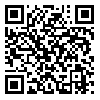Volume 18, Issue 59 (4-2024)
MLJ 2024, 18(59): 400-411 |
Back to browse issues page
Download citation:
BibTeX | RIS | EndNote | Medlars | ProCite | Reference Manager | RefWorks
Send citation to:



BibTeX | RIS | EndNote | Medlars | ProCite | Reference Manager | RefWorks
Send citation to:
Fallah Keti Latte N, Abbasi M, Ghorbani Gatab O. A Comparative Study of Civil Liability Resulting from the Use of Artificial Intelligence in Medical Surgeries from the Perspective of the
Iranian and American Legal Systems. MLJ 2024; 18 (59) :400-411
URL: http://ijmedicallaw.ir/article-1-1767-en.html
URL: http://ijmedicallaw.ir/article-1-1767-en.html
1- Department of Private Law, Qaem Shahr Branch, Islamic Azad University, Qaem Shahr, Iran
2- Department of Private Law, Tehran East Branch, Islamic Azad University, Tehran, Iran.
2- Department of Private Law, Tehran East Branch, Islamic Azad University, Tehran, Iran.
Abstract:
Background and Aim: Artificial intelligence has brought vast developments in various fields for humanity, especially in the field of health. Medical innovations, such as the use of intelligent robots and intelligent nurses, bring many hopes in the field of prevention and treatment of diseases and management. It is more appropriate for patients to live. However, regulation in the field of artificial intelligence application for therapeutic and health uses is still one of the areas that has been raised as a challenge.
Method: This research was of a theoretical type and the research method is descriptive-analytical and the method of collecting information is library and it was done by referring to documents, books and articles.
Ethical Considerations: In the current research, the principles of trustworthiness, honesty, originality and neutrality of the work have been respected.
Results: While the type of civil liability resulting from the use of artificial intelligence in medical surgeries in Iran's legal system is subject to the civil liability law of 1940 due to the lack of specific legal provisions, and fault-based civil liability prevails in this legal system. The US type of civil liability is absolute civil liability.
Conclusion: The civil liability resulting from the use of artificial intelligence in medical surgeries mainly arises in two forms of negligence and breach of warranty, while in Iran's legal system, the civil liability resulting from the use of artificial intelligence is the responsibility of the company that produces it, while In the American legal system, depending on the case, the company, the surgical team or even the artificial intelligence itself is subject to civil liability.
Please cite this article as:
Fallah Keti Latte N, Abbasi M, Ghorbani Gatab O. A Comparative Study of Civil Liability Resulting from the Use of Artificial Intelligence in Medical Surgeries from the Perspective of the Iranian and American Legal Systems. Medical Law Journal. 2024; 18: e28.
Method: This research was of a theoretical type and the research method is descriptive-analytical and the method of collecting information is library and it was done by referring to documents, books and articles.
Ethical Considerations: In the current research, the principles of trustworthiness, honesty, originality and neutrality of the work have been respected.
Results: While the type of civil liability resulting from the use of artificial intelligence in medical surgeries in Iran's legal system is subject to the civil liability law of 1940 due to the lack of specific legal provisions, and fault-based civil liability prevails in this legal system. The US type of civil liability is absolute civil liability.
Conclusion: The civil liability resulting from the use of artificial intelligence in medical surgeries mainly arises in two forms of negligence and breach of warranty, while in Iran's legal system, the civil liability resulting from the use of artificial intelligence is the responsibility of the company that produces it, while In the American legal system, depending on the case, the company, the surgical team or even the artificial intelligence itself is subject to civil liability.
Please cite this article as:
Fallah Keti Latte N, Abbasi M, Ghorbani Gatab O. A Comparative Study of Civil Liability Resulting from the Use of Artificial Intelligence in Medical Surgeries from the Perspective of the Iranian and American Legal Systems. Medical Law Journal. 2024; 18: e28.
| Rights and permissions | |
 |
This work is licensed under a Creative Commons Attribution-NonCommercial 4.0 International License. |





